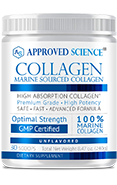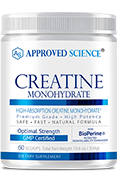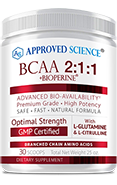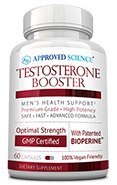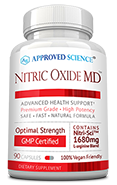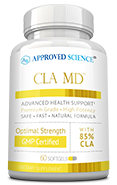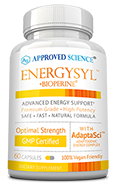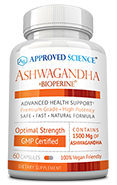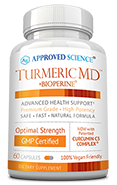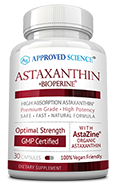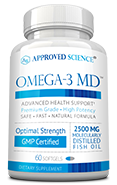Whether you’re an experienced gym rat, a newbie to the exercise game, or just trying to maximize your physical fitness, there are many supplements that can help on your journey. Sometimes you might even feel like there are too many workout supplements and you don’t know what to choose. Should you take Creatine for stronger muscles? What are BCAAs? Do adaptogens really help? This post will detail the most popular workout supplements and even some you might not have heard of yet to make you feel like the most up-to-date person on workout supplements.
Protein Powder
Protein powder, a popular supplement among fitness enthusiasts, plays a crucial role in enhancing workout results. By providing a concentrated source of protein, it supports muscle repair and growth, which is vital after exercise-induced muscle damage. Incorporating protein powder into a post-workout regimen can expedite muscle recovery, increase muscle synthesis, and improve overall strength (1). This efficient recovery is essential for consistent progress in both strength and endurance training, allowing for more frequent and intense workouts. Moreover, protein powders can help in maintaining a lean muscle mass and aid in weight management by promoting satiety.
Collagen Powder
Collagen powder, a specific type of protein supplement, offers additional benefits, especially for joint health and skin elasticity. Rich in amino acids like proline and glycine, collagen supports the repair of connective tissues, which can be strained during high-impact or repetitive exercises. It has been found to aid in reducing joint discomfort and enhancing flexibility, thereby improving overall workout performance (2). Furthermore, a study found that supplementation with collagen peptides led to improved body composition in recreationally active, healthy men (3). Incorporating collagen powder into a fitness routine can thus provide a comprehensive approach to wellness, addressing both muscular and joint health.
Creatine
Creatine is a naturally occurring compound in the body, primarily found in muscle cells. It plays a pivotal role in energy production, especially during high-intensity, short-duration exercises like sprinting or weight lifting. Due to its energy-boosting properties, creatine powder is a popular workout supplement.
The primary function of creatine in the body is to increase the stores of phosphocreatine in the muscles. Phosphocreatine aids in the formation of adenosine triphosphate (ATP), which is the key energy currency of the cell. During exercise, ATP breaks down to produce energy. By enhancing ATP regeneration, creatine supplementation can lead to improved strength, increased muscle mass, and faster recovery times.
Additionally, creatine increases water content in the muscles which can lead to larger muscles which makes it a good choice for individuals trying to quickly build physique.
Save 10% On Approved Science® Creatine Powder!
Amino Acids: BCAA, HMB, Carnitine & Glutamine
Amino acids are often referred to as the building blocks of proteins. They play a crucial role in various bodily functions, including muscle growth, energy production, and recovery. When it comes to fitness and workouts, amino acids become particularly important due to their direct impact on muscle health and performance.
During exercise, our bodies undergo stress, leading to muscle wear and tear. Amino acids step in to repair and rebuild these muscle tissues, aiding in recovery and growth (4). There are twenty different amino acids, but nine of these are considered essential, meaning our body cannot produce them on its own and we must obtain them through diet or supplements. The most popular amino acid supplements for enhancing workouts include BCAA, HMB, Carnitine, and Glutamine.
1. BCAA
Branched-Chain Amino Acids (BCAA) are the essential amino acids leucine, isoleucine, and valine. They are highly effective in promoting muscle protein synthesis, which is the process of rebuilding muscle tissue (5). Leucine, in particular, is known for its ability to stimulate this process efficiently. Though often considered a workout supplement, a leucine-rich supplement has been used to increase muscle strength and walking speed of older adults (5).
2. HMB (β-Hydroxy β-Methylbutyrate)
HMB, a byproduct of leucine metabolism, is known for its muscle-preserving qualities. During intense training, HMB plays a critical role in decreasing muscle protein breakdown, thus supporting muscle recovery and growth. This compound is particularly beneficial for those engaging in strength training or activities that put considerable strain on the muscles. Studies have shown that HMB supplementation can lead to increased lean muscle mass and strength, making it a valuable addition to a workout supplement regimen (6).
As a byproduct of one of the BCAAs, you might be wonder what the difference is between HMB and BCAAs. The answer is that even though HMB and BCAAs both aid in muscle recovery, they do so through different pathways. While BCAAs, especially leucine, are essential for muscle protein synthesis and energy during workouts, HMB, a metabolite of leucine, primarily helps reduce muscle protein breakdown. This complementary action means you’re not only fueling muscle growth but also protecting muscles from excessive breakdown.
📣 Good News! A HMB supplement is on the horizon at Approved Science®. Keep an eye out and be among the first to experience its benefits!
3. Carnitine
Carnitine plays a vital role in the transport of fatty acids into the mitochondria, the energy-producing furnaces within the cells (7). By enhancing this process, carnitine helps improve endurance, reduce fatigue, and support fat metabolism. This makes it particularly effective for exercises aimed at endurance improvement and weight loss. Moreover, carnitine has been shown to improve recovery post-exercise by reducing muscle soreness and tissue damage (8).
4. Glutamine
Glutamine, one of the most abundant amino acids in the body, is crucial for muscle recovery and immune function. During prolonged periods of intense exercise, glutamine levels can deplete, leading to muscle fatigue and decreased strength. Supplementation with glutamine helps replenish these levels, promoting muscle repair and aiding in overall recovery (9). Additionally, its role in supporting immune health is particularly beneficial for athletes undergoing rigorous training schedules, as it helps maintain optimal health and prevents training-related immunosuppression (10).
Testosterone booster
Testosterone boosters are supplements designed to naturally increase the body’s testosterone levels, offering several potential benefits for workout enthusiasts. Testosterone, a key hormone in muscle growth and development, influences how the body builds muscle and recovers from exercise. By elevating testosterone levels, these boosters can enhance muscle mass and increase strength (11). This hormonal boost is particularly beneficial during resistance training and high-intensity workouts, where muscle strain is significant, and recovery is crucial for continuous performance improvement.
However, it’s important to approach testosterone boosters with a balanced perspective. While they can aid in muscle development and overall workout performance, they’re most effective when used in conjunction with a well-structured exercise regimen and a nutritious diet. Over-reliance on such supplements without these foundational elements may lead to suboptimal results. Therefore, for individuals looking to amplify their workout results, combining a healthy lifestyle with a testosterone booster, under medical supervision, can create an effective synergy for enhanced physical performance and muscle growth.
Nitric Oxide Boosters
Nitric Oxide (NO) boosters are a powerhouse in the workout supplement world, primarily due to their ability to enhance blood flow. This increase in circulation is pivotal during exercise, as it shuttles more oxygen and essential nutrients to working muscles. The result? Enhanced endurance, reduced fatigue, and a more energized workout experience. Users often note a significant reduction in muscle soreness, attributing to longer, more intense training sessions.
CLA
Conjugated Linoleic Acid (CLA) is one of the less popular workout supplements, but a workout supplement nonetheless. It is a naturally occurring fatty acid that comes from meat and dairy. Known for its unique influence on body composition, CLA has been linked to small increase in muscle mass and reduced body fat, making it an attractive supplement for those looking to enhance their physical training results (12). Its ability to modify body composition not only aids in building a leaner physique but also contributes to improved overall fitness and health.
Save 10% On Approved Science® Workout Supplements!
Adaptogen Blends & B Vitamins
Adaptogens are a unique group of herbal ingredients used to improve the health and functioning of your body’s stress response system. They help in stabilizing physiological processes and promoting homeostasis, particularly in response to stress, be it physical, environmental, or emotional. In the realm of fitness and exercise, adaptogens like Rhodiola Rosea, Siberian Ginseng, and Ashwagandha have gained popularity for their ability to boost energy levels, enhance endurance, and aid in recovery, making them a valuable addition to any workout regimen.
For an even greater energy boost, Approved Science recommends combining adaptogens with the B vitamins. The B vitamins are often overlooked when people think of exercise supplements but these little compounds are very involved in energy synthesis and making sure you feel up for going to the gym, hitting the track, or even just getting off the couch to do your own exercise.
Ashwagandha
Ashwagandha, can be found in adaptogen blends and is often sold as a stand-alone supplement. It is known for its strength-enhancing properties, particularly beneficial in resistance training and weightlifting (13). It supports the body’s stress response, enabling more intense and productive workouts. Research suggests that regular Ashwagandha intake can significantly improve muscle strength and size (13). Moreover, its ability to alleviate stress contributes to better sleep quality, which is crucial for muscle repair and growth, making Ashwagandha a comprehensive supplement for enhancing workout results.
Turmeric
Turmeric, primarily known for its active compound curcumin, has been widely recognized for its anti-inflammatory and antioxidant properties. These characteristics make it a valuable supplement for those engaged in regular exercise and fitness activities. The anti-inflammatory effects of turmeric can be particularly beneficial for reducing muscle soreness and inflammation that often follow workouts (14). This can lead to quicker recovery times and improved exercise performance over time. Additionally, the antioxidant properties of turmeric help combat oxidative stress, which is often elevated after strenuous physical activities. This can potentially enhance muscle recovery and overall physical performance.
Save 10% On Approved Science® Workout Supplements!
Astaxanthin
Astaxanthin, a powerful antioxidant, is gaining popularity among fitness enthusiasts for its potential benefits in exercise performance and recovery. Found naturally in certain algae, fish, and seafood, this carotenoid is known for its ability to scavenge free radicals and protect cells from oxidative damage. For individuals who engage in regular physical activity, astaxanthin may help improve performance and recovery (15). The effects on recovery may in part be because of its anti-inflammatory properties. Astaxanthin’s ability to bolster the immune system is another advantage for active individuals, and the benefits don’t end there!
General Nutrition Supplements: Omega-3, Vitamin D
General nutrition plays a pivotal role in exercise performance, serving as the fuel that powers all bodily functions during physical activities. A well-balanced diet ensures that the body receives the necessary macronutrients (carbohydrates, proteins, and fats) and micronutrients (vitamins and minerals) to function optimally. However, in today’s day and age, many people are not meeting their nutritional needs through diet alone and therefore take supplements to help them meet their needs. Two supplements for general health that may have an impact on exercise performance are Omega-3 and Vitamin D.
Vitamin D
Vitamin D is not often considered as a workout supplement but no one will contest that it is a vital part of a healthy diet. Unfortunately, many athletes have vitamin D deficiencies, which might affect their performance (16). This vitamin is well-known for maintaining bone health, which is essential to prevent stress fractures and osteoporosis. Beyond bones, Vitamin D is believed to be important for muscle function and recovery, though further research is required (17,16).
📣The HMB supplement we're working on will also contain vitamin D so you can get a 2-in-1!
Omega-3
Omega-3 fatty acids, found in fatty fish, flaxseeds, and walnuts, are key to exercise performance. Their anti-inflammatory properties are beneficial for athletes. Omega-3s have been observed to help reduce exercise-induced muscle damage and thereby shorten recover time after workouts (18). This allows for more consistent and effective training. The benefits of Omega-3 also include improving cardiovascular health, which may lead to better endurance and performance. Additionally, Omega-3s support joint health, reducing the risk of injuries related to inflammation, common in high-impact sports or long-term physical activity.
Conclusion
The most popular exercise supplements for building muscle mass include protein powders, creatine, amino acids, testosterone boosters, and CLA. For increasing energy and fighting fatigue, adaptogens are the main supplements of choice, especially ashwagandha. When it comes to reducing inflammation and supporting recovery, supplements like turmeric and astaxanthin are often favored. Lastly, for individuals who just want to make sure that they’re meeting their basic needs in order to be able to workout, vitamin D and omega-3 are often what they choose. Please note that this guide serves to provide information and that you should always consult with your doctor before starting any supplements.


